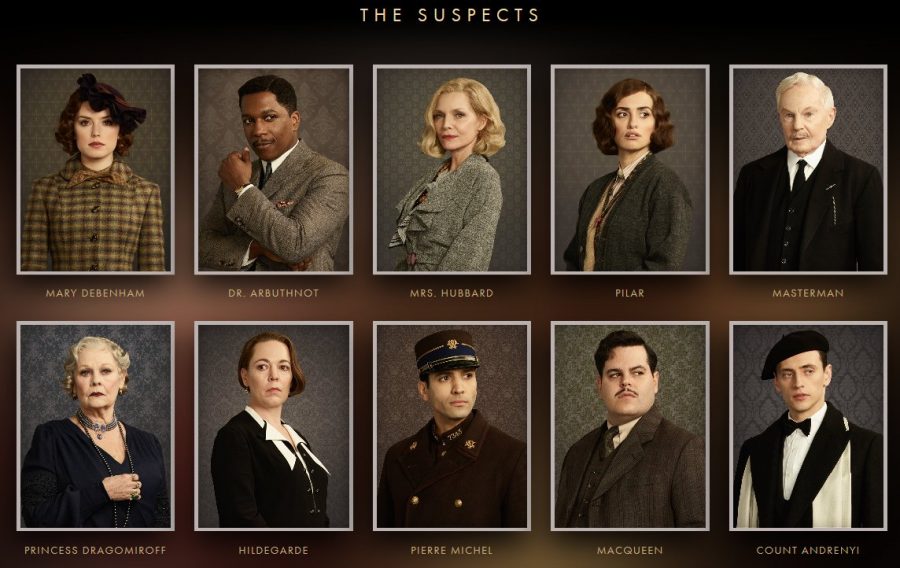Film Review: Murder on the Orient Express
November 29, 2017
By Nellie Shih ’19, Arts and Entertainment Editor
The fourth adaption of Agatha Christie’s novel, Murder on the Orient Express, is a whodunnit mystery following Detective Hercule Poirot played and directed by Kenneth Branagh (Henry V, Harry Potter and the Chamber of Secrets, Dunkirk) as he is recruited to solve a case regarding the train he is currently travelling on. Murder on the Orient Express carries a strong cast and cinematography, but it loses steam when the murderer is revealed. I read Christie’s novel this summer when I heard it was being adapted into a new movie, and I loved it. But, compared to the novel, the film’s reveal of the murderer and his/her (loco)motive fell a little flat.
I had originally heard about the movie when I found out Daisy Ridley, the breakout star of Star Wars: The Force Awakens, had been cast. My excitement was heightened when I found out the film’s star-studded cast would also include Penélope Cruz (Pirates of the Caribbean: On Stranger Tides), Willem Dafoe (Spider-Man (2002)), Judi Dench (the James Bond films), Johnny Depp (Pirates of the Caribbean, Sweeney Todd, Charlie and the Chocolate Factory), Josh Gad (Frozen, Beauty and the Beast), Leslie Odom Jr. (Hamilton), and Michelle Pfeiffer (Scarface, Dangerous Liaisons, Batman Returns, Hairspray, Dark Shadows). I still stand by my statement that the big reveal of the film went a little off the rails, but all the actors did a phenomenal job with what they had. The characters were all unique and I wished I could’ve seen more of everyone. The actors work well with each other both on and off screen—you may have seen Josh Gad’s interrogation of Daisy Ridley for Star Wars spoilers.
The film also featured some beautiful shoots of the snowy landscape and birds-eye-view of the train’s layout. But my favorite shots came early in the film when the passengers first find out someone had been murdered. The camera shot through the beveled glass on the windows, creating a triple-vision effect on all the suspects. The cinematography, one of the film’s stronger suits, enhanced the mystery.
Murder on the Orient Express did a great job of staying close to Christie’s novel, while adding more action and a slight psychological twist on the big reveal. While the film had a great path laid out in front of it, it veered off-course, losing some of the shock factor. What rail-ly grinds my gears is that the psychological twist would’ve made the film stand out from the other iterations of Christie’s murder-mystery, but the execution could have been much more engaging. I watched it with two of my friends, one of which had not read the book before. Although we all agreed that the film failed to deliver the climax of the plot extremely well, we still enjoyed the film.
Overall, if I had to (choo-choo) chose between Christie’s original novel and the 2017 adaption of the film, I would choose the book. Still, Murder on the Orient Express is a fun ride, blending together drama, crime, humor, and action. While I don’t think you’d demand a refund if you decided to see this film, from what I’ve heard, you should probably prioritize buying a ticket to Thor: Ragnarok.



